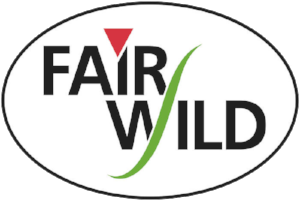FairWild Foundation publishes FairWild Standard Revision and Development Procedure
16th April 2019 - The FairWild Foundation has today published a new policy document “FairWild Standard Revision and Development Procedure (Version 1/2019).”
The document describes the process by which the FairWild Standard – an internationally recognized set of principles, criteria and indicators for verifying the sustainable and equitable trade in wild harvested ingredients – will be periodically reviewed and revised.
The procedures will also apply to any other sustainability standards the FairWild Foundation may develop in the future.
The Revision and Development Procedure document has been developed in respect of principles of good practice in the setting of multi-stakeholder sustainability standards, as defined by the ISEAL Alliance. FairWild Foundation is a subscriber to ISEAL.
"The FairWild Foundation is dedicated to making the FairWild Standard accessible, efficient to implement and effective in achieving our social and environmental goals. We are committed to learning from our experience and from that of our stakeholders.”
Danna Leaman, member of the FairWild Board of Trustees,
“These principles are embedded in our revision and development procedures for the FairWild Standard, which we have now codified in this new policy document.”
In 2019, FairWild Foundation is also conducting a review of stakeholder feedback and implementation experience with the FairWild Standard, as described in the Revision and Development Procedure document. Such reviews are initiated by the FairWild Board of Trustees at least every five years.
Bryony Morgan, Executive Officer of the FairWild Foundation Secretariat, explained, “In 2019 we are reviewing stakeholder feedback and expect to make some clarifications and interim revisions to the FairWild Standard as a result – in order to facilitate access and to make sure that the requirements are being interpreted in a consistent way.”
“This has become particularly important now that we have a growing number of control bodies accredited to offer FairWild certification.”
The review process includes a one-day expert workshop to be held in Budapest, Hungary, immediately after the FairWild Forum 2019.
Proposals of clarifications and revisions to the Standard and its performance indicators will be considered in line with document sections J. Urgent revisions, K. Administrative and Non-substantive Changes, L. Clarifications, M. Guidance Materials. The resulting recommendations are expected be presented to the FairWild Board of Trustees at its annual Board Meeting in July, along with any proposals on the need for a further public consultation and revision process.
Morgan added, “While our current process focuses on the compilation and review of information received to date, any stakeholder may contact us to request we consider a particular topic. We appreciate any feedback that will help us to improve the Standard.”
“The review process in 2019 will be an important milestone in our management of the FairWild Standard and will contribute to meeting our overall objectives for its further development – to simplify and increase the accessibility of the Standard; while not reducing its rigour and impact”.

